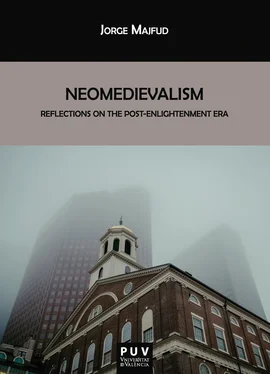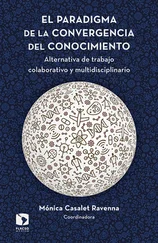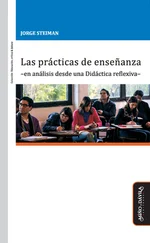Although this term is a neologism, I do not believe that at root the idea is original: everything that occurs to us others have already intuited before. It is sufficient to read those ancient Greeks in order to discover there the first indications of Darwin’s theory of evolution (Empedocles), Dalton or Bohr’s atoms (Leucippius or Democritus), Einstein’s mass-energy equivalency (Heraclitus), modern epistemology (idem), Freud’s bicephalic psyche (Plato), Derrida or Lyotard’s poststructuralism (the Sophists), etc.
I suspect that the Italian Antonio Gramsci could have broadened the ideolexicon concept in the 1930s (perhaps he had already done so in his Quaderni del carcere , although I have not been able to find that precise moment among the more than two thousand pages of this disarticulated work). One of Gramsci’s observations with regard to Marxism was the warning of a certain autonomy of the superstructure. That is, if previously it was understood that the infrastructure (the productive, economic order) determined super-structural reality (culture in general), later it was seen that the process could not only be the inverse (Max Weber) but simultaneous or dialectical (Althusser). For me, examples of the first are slavery, modern education, feminism, etc. Humanist ideals that condemned slavery existed centuries before they would be transformed into a social precept. A Marxist explanation is immediate: only when the industry of the developed countries (England and the northern United States) found an economic problem with the slavery system was the new morality (and practice) imposed. The same with universal education: the uniformity of the children’s tunics, the rigorous compliance with schedules do nothing more than to adapt the future worker to the discipline of industry (or the army), the culture of standardization. For which reason today the universities and education in general have begun a reverse process of de-uniformization. Feminist demands are also ancient (and part of humanism), but they do not become a moral exigency until capitalist society and the industrialized communist societies needed new workers and, above all, new female wage workers.
Anyway, we can understand that, although these advances have not been obtained by an ethical conscience but by initial interests of the oppressors (like the universal vote for a people easily manipulable by the caudillo and propaganda), at any rate the road travelled “forward” is not walked backward so easily, even if those interests that made it possible were to change. Power is never absolute; it always must make concessions in order to maintain itself.
In our time, even though the use of brute force like in the times of Attila is not entirely looked down upon, it is no longer possible to lay waste to peoples and oppress other men and women without a legitimation. Much less in a global society that, though still submersed in the traditional networks of information, progressively tends to snatch from sectarian powers the narration of its own history . These legitimations of power may be farcical (they still trust in the fragile memory of obedient nations, or nations terrified by physical and moral violence), but their strength is the power of semantic manipulation to produce a determined reality: when a bomb is dropped from a plane and tens of innocents die, terms are used like “defense,” “liberation,” “collateral effects,” etc. If the same bomb is placed by an individual in a market and it kills the same quantity of innocents, that act is defined as “terrorist,” “barbaric,” “murderous,” etc. From the other side, the ideolexicons will be different: some are imperialists , other rebels or patriots .
In the 19 thcentury, the Argentine D. F. Sarmiento defined José Artigas as “terrorist” (for others he was liberator , rebel ), while the general Julio Argentino Roca became a military hero , in multiple bronze statues, because of the ethnic cleansing that his army carried out against the original owners of Patagonia (“There was no battle, it was a parade beneath the Patagonian sun and we achieved 1600 dead and another 10,000 of the rabble. It was the fate of a savage race that was already defeated,” informed the venerated general Roca).
Конец ознакомительного фрагмента.
Текст предоставлен ООО «ЛитРес».
Прочитайте эту книгу целиком, купив полную легальную версию на ЛитРес.
Безопасно оплатить книгу можно банковской картой Visa, MasterCard, Maestro, со счета мобильного телефона, с платежного терминала, в салоне МТС или Связной, через PayPal, WebMoney, Яндекс.Деньги, QIWI Кошелек, бонусными картами или другим удобным Вам способом.












